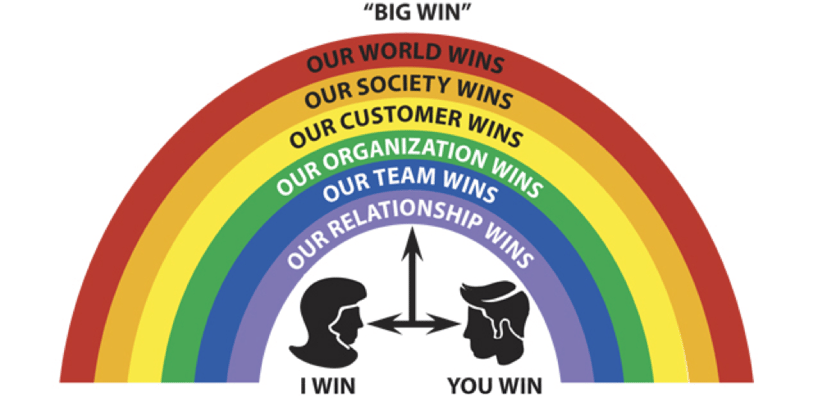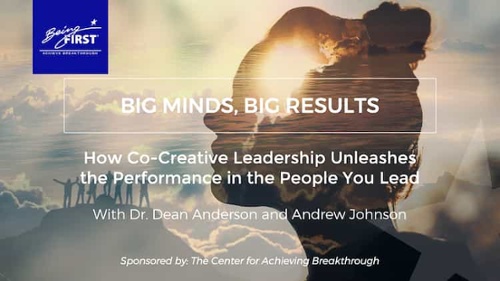In life and in organizational change, most people operate with a win-lose mindset. Others strive toward a win-win mindset. Very few, however, embrace the concept of WIN-Win-Win, and fewer still reap the rewards. Let's explore this powerful mindset.
What is WIN-Win-Win?
By WIN-Win-Win, we mean that you, me, and the larger system(s) of which we are a part all win. In this winning mindset, there is a slight priority placed on the needs of larger systems, i.e., the team, the division, the enterprise, the community, society, the planet. I get what I need, you get what you need, and of greatest importance, the larger systems get what they need to succeed.
Going for the Big WIN
The “Big Win” refers to these larger systems, while the “smaller” wins—you and me—refer to us individually, or it can refer to distinct groups. For example, the Big Win might refer to the whole enterprise succeeding, with the two small wins referring to management and the union. Or, the Big Win might refer to the enterprise's needs, with the two small wins referring to the needs of the North American business unit and the Asian business unit.
In a WIN-Win-Win mindset, you first orient up to the needs of the greater whole(s), rather than down to your own self-interests.
Why Shift Your Mindset?
This powerful mindset is important because when individuals or groups commit first and foremost to the needs of the larger systems, they become team mates pursuing common goals, partners in a common interest rather than adversaries fighting for their own self-interest. Furthermore, the Big Win is best achieved when each side is supported by others rather than in conflict with them. and calls for a new way of being, working, and relating. We call this new way, “Co-Creating.”
Why Win-Win and Win-Lose Offer Marginal Success
When people operate from a win-lose mindset, self-interest and self-preservation drive their thinking and behavior. This causes them to seek “power over and control" of others, and to pursue what they think is best for their group at the expense of what the other group(s) might need or want. This is often a limitation of the command and control leadership style. When the stakes, passions, or egos are high, the win-lose mentality leads to adversarial relationships and team dynamics that waste energy and productivity. It escalates competition, politics, aggression, and defensiveness—none of which support the good of the enterprise.
Win-win is often a disguise for win-lose, where the parties realize that all-out war will leave them bruised and hurt, so they compromise under the guise of “collaboration” to avoid significant pain or loss. But really, they are seeking to get as much of their individual needs met as possible. Win-Win is simply their chosen strategy for doing so.
A win-win situation works only if both parties live by “I'll scratch your back if you scratch mine.” It falls apart when one person stops scratching and becomes too concerned with their own itch.
A Real Transformation
While Win-Win is less disruptive and damaging than Win-Lose can be, it is a far cry from the real transformation to WIN-Win-Win, where self-interest gets replaced by support of the whole. This mindset is a fundamental transformation of the individual's ego-driven self-preservation needs and leads to sustainable business success for all.



